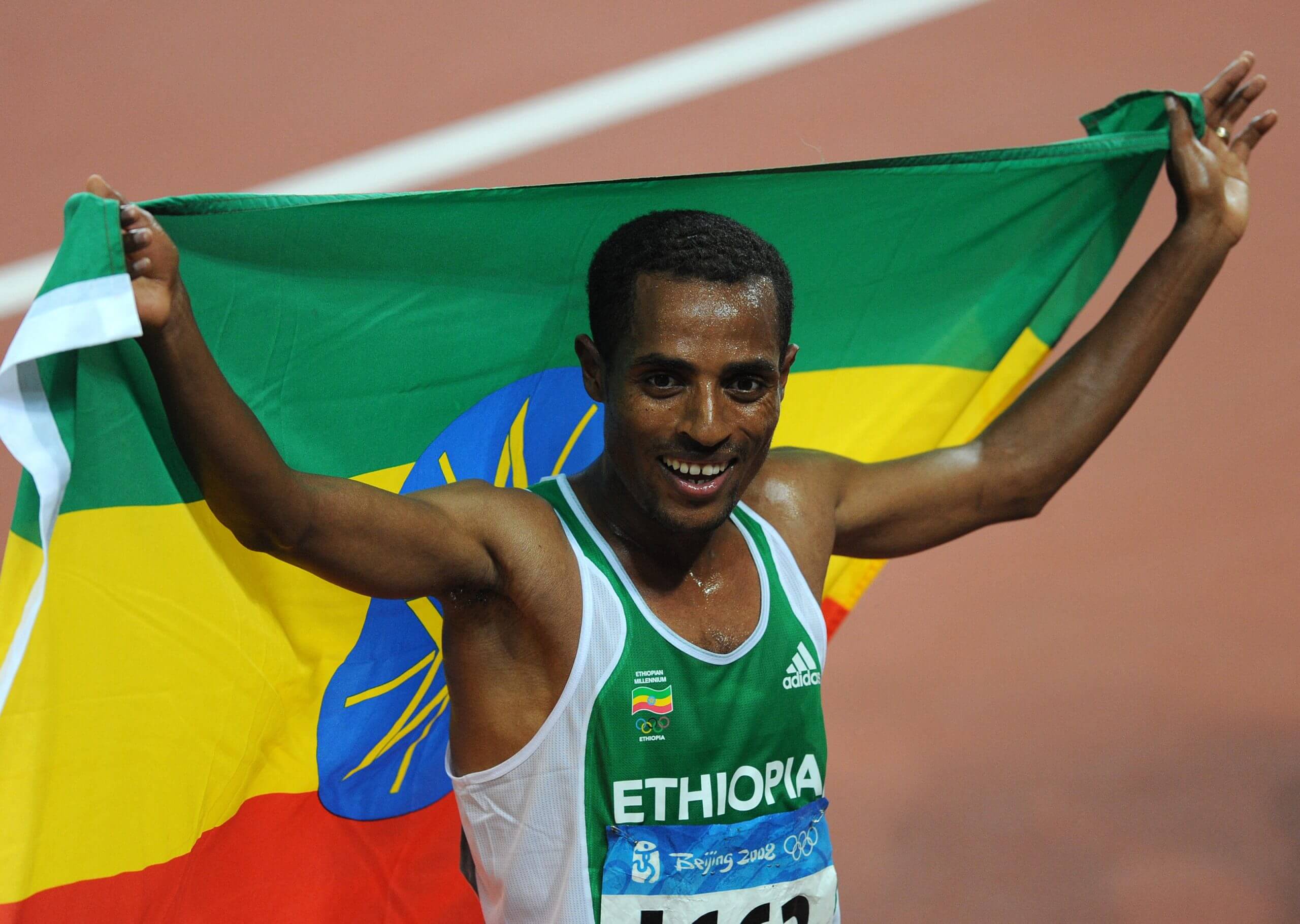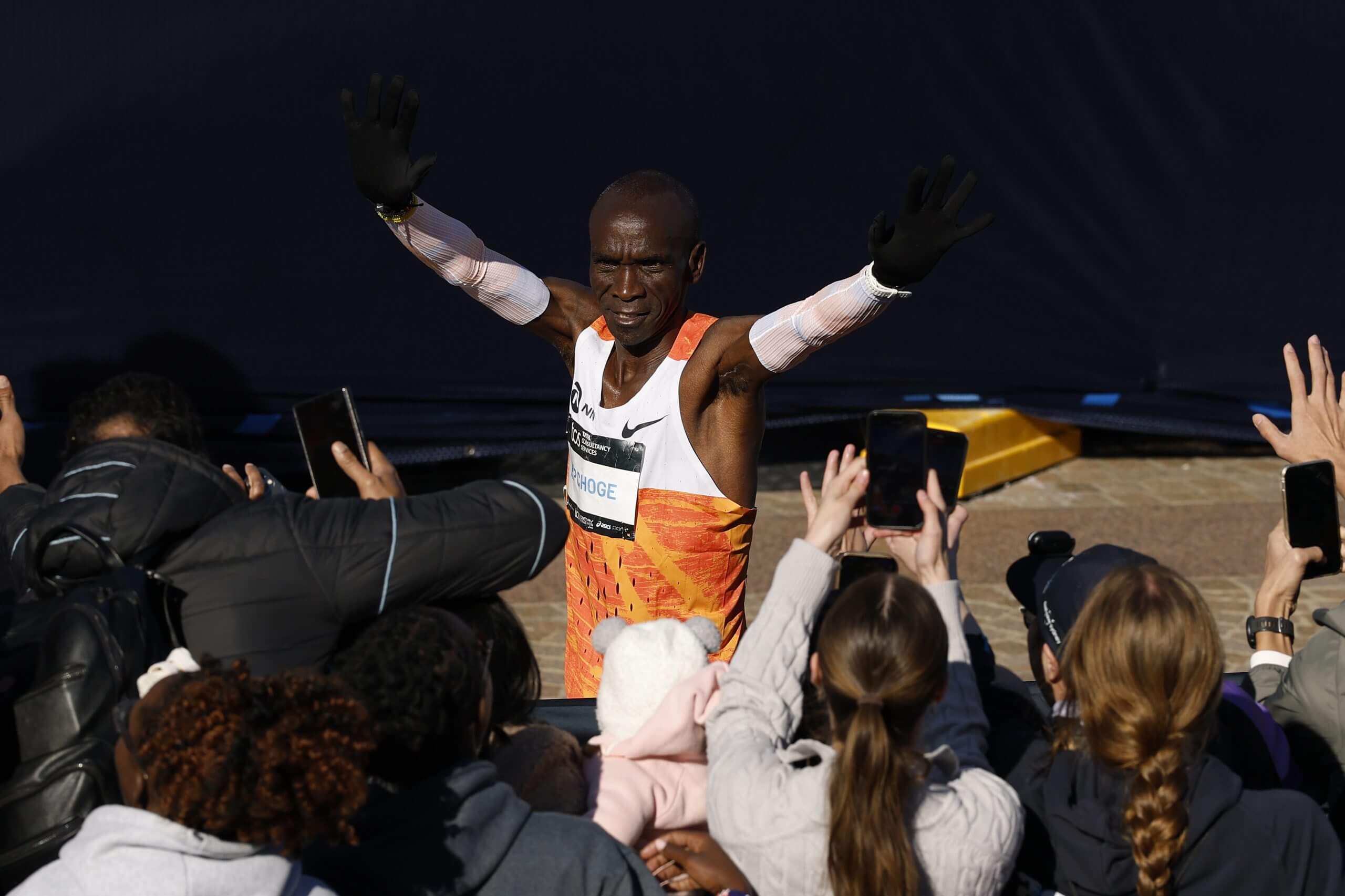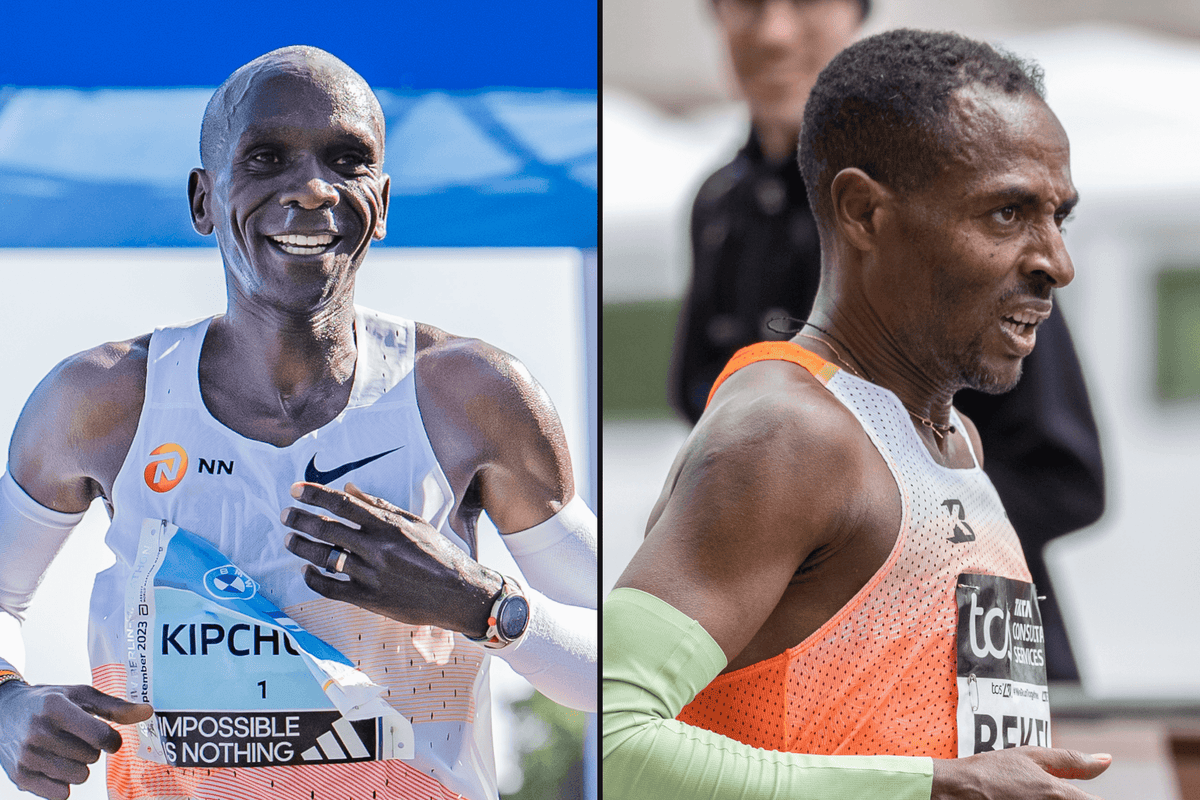Eliud Kipchoge and Kenenisa Bekele are no longer just competing against each other and the clock. Father Time has entered the race.
In New York City on Sunday, Bekele, 43, and Kipchoge, who turns 41 on Wednesday, will toe the start line of a marathon together for the sixth time. It will be Kipchoge’s debut in the event, the only major he is yet to run in, while Bekele finished sixth there in 2021.
Two glittering careers are now into their twilight years. For the better part of two decades, Kipchoge versus Bekele has effectively been Kenya against Ethiopia, the two heavyweights of the world’s distance-running superpowers.
They were the best men’s marathoners of the 2010s, after duking it out on the track in the previous decade, and theirs is one of sport’s great rivalries, alongside Roger Federer and Rafael Nadal (tennis), Muhammad Ali versus Joe Frazier (boxing), Lionel Messi against Cristiano Ronaldo (soccer), Usain Bolt and Justin Gatlin (100m).
“I will make a huge announcement on Sunday afternoon on my program for next year,” Kipchoge said at the pre-race press conference. He has said that this will be his final major marathon. ”I still line up and try to push myself. I am happy to run at the age of 41 to still be able to run with the young people,” he continued.
”I want to leave the sport to the better people than myself , so I showed them the way but I really believe that they are better than me.”
This will be his and Bekele’s 25th meeting, more than 22 years after they first raced each other — a 5,000m at the Bislett Games in Oslo, Norway in 2003 which Bekele won, just seven hundredths of a second ahead of a different Kenyan, Sammy Kipketer. Kipchoge was third, but less than half a second back.
Bekele dominated on the track, winning three Olympic titles and five World Championship golds over 5,000m and 10,000m between 2003 and 2009.
Kipchoge earned bronze (2004) and silver (2008) Olympic medals in the 5,000m, having been crowned world champion over that distance in 2003, running a championships-record time to beat Bekele (bronze) and Moroccan middle-distance great Hicham El Guerrouj (silver). It was one of only two occasions where Bekele has not won a 5,000m final he’s been part of.
Bekele would twice complete the track distance-running double (5,000m and 10,000m gold), at the 2008 Olympics and the following year’s World Championships. Kipchoge was second and fifth in the 5,000m finals at those same meetings. That 2003 world title remains his only one.
This was why, by 2012, when Bekele came fourth in the Olympic 10,000m final — one second outside the medals, with his younger brother Tariku earning bronze — Kipchoge had started racing half-marathons.

Kenenisa Bekele celebrates winning gold in the men’s 5,000m at the 2008 Olympics (William West / AFP via Getty Images)
The Kenyan’s 59:25 for third place in Lille, France, that September was the second-fastest debut half-marathon ever at the time. He had clearly found his calling, with three wins from five races in 2013 being as many as he’d achieved in the previous three years combined.
“I promised a course record, and I did it,” Kipchoge said after running 2:05:30 in Hamburg, Germany on his full marathon debut in April 2013. A first marathon against Bekele would come in 2014, with the Ethiopian having also moved to the roads at the end of the prior year, winning the Great North Run, the acclaimed English half-marathon, on his first attempt.
Kipchoge led a Kenyan podium sweep in Chicago in October 2014, running 2:04:11, with Bekele finishing fourth (2:05:51) but more than a minute behind third-place Dickson Chumba.
The ever-consistent Kipchoge also won their next three marathon meetings: London in April 2016, Berlin the following September, and London again in 2018. “Our plan was to run very well on the track, then we decided to turn to the road. The transition so far has been good,” he said, prophetically, in 2015.
Within that streak of races came Breaking2, Nike’s attempt at having Kipchoge, plus Eritrean Zersenay Tadese and Ethiopia’s Lelisa Desisa, run a sub-two-hour marathon. He came within 25 seconds of the target at Monza, Italy, in the May of 2017, a year where Bekele DNFed at marathons in Dubai (January) and Berlin (September).
This was the difference: Bekele had been the more consistent, reliable athlete on the track, which Kipchoge became on the roads.
Exactly why Bekele, also a Nike athlete — and, at the time, a faster marathoner than Kipchoge by two seconds — was not part of Breaking2 remains not only a mystery but a shame. Kipchoge called Bekele a “legend” in his training diaries ahead of the project’s attempt in Vienna, Austria in October 2019, where he ran 1:59:40, breaking the coveted two-hour barrier.
The Ethiopian was the key figure missing, with a 41-strong pacemaking team (rotating in groups of seven) that Kipchoge called “hugely impressive”.
Instead, Bekele had a shot at the official world record in Berlin two weeks earlier. He ran 2:01:41, which still stands as the third-fastest marathon, finishing an agonising two seconds behind Kipchoge’s then-world record (from the same event in 2018).
Despite running four consecutively-faster 5km splits between 20km and 40km (12.4-24.9 miles) — which put him two seconds up on world-record pace with 2.2km (less than a mile and a half) to go — Bekele closed four seconds slower than Kipchoge had run in the German capital the year prior.
It meant there would be no marathon world record to add to the 5,000m and 10,000m ones he held from 2004 until 2020, when Ugandan Joshua Cheptegei broke them both.
“I know I can still run a very good marathon, and I won’t give up,“ he said after crossing the line in Berlin.
But that race proved to be his peak.
In 2022, Kipchoge became the first man since Haile Gebrselassie of Ethiopia in 2008 to better a marathon world record he already held — 2:01:09 (in Berlin, of course), 30 seconds quicker than the time he produced in 2018.
Two further world records have, technically, come since for Bekele — his 2:04:19 in Valencia, Spain, two years ago was the fastest by any man aged 40 or older, and he then improved that by four seconds in London in April 2024.
When Kipchoge and Bekele lined up for the Olympic marathon in Paris last August, many expected it to be their final race together. It was the end of a six-year wait for them to race each other again.
“We have had many great battles over the years on the track, roads and cross-country,” Bekele said in 2020, when he planned to race the pandemic-delayed London Marathon against his great rival that October, but pulled out with a calf injury.

Eliud Kipchoge waves to fans after finishing ninth in this year’s Sydney Marathon in August (Darrian Traynor / Getty Images)
Kipchoge lost that day for the first time in seven years (and in 10 competitive marathons), finishing eighth in 2:06:49. He said afterwards that a blocked ear had caused him problems in the final 15km.
“We are disciplined for a long time to stay in the sport and we are role models for the young generations,” Bekele added in 2020. “I have a big respect for Eliud. What he did is a really great thing for the sport. Still we are racing each other, and I’m happy about it.” That respect was, and is, mutual.
This will be the first time Kipchoge has raced three marathons in one year — after London in April (2:05:25, sixth place) and Sydney in August (2:08:31, ninth). He is now Kenya’s male athlete representative to the Olympic Committee, a role which will stretch beyond his participation in competition.
Many view this as a soft launch of retirement, one big victory lap to soak in the deserved acclaim. New York is the only major he has not yet run, and doing so tomorrow will mean he completes the six-race series.
“It is a difficult time for me,” Kipchoge said in Paris last summer, where he dropped out at 30km because of pain around his waist.
“This is my worst marathon. I have never done a DNF. Like a boxer, I have been knocked down, I have won, I have come second, eighth, 10th, fifth – now I did not finish. That’s life.”
There, Bekele came 39th, running his slowest marathon (2:12:24), albeit on the event’s hardest course in Olympic history — one which broke his rival. “It was not the race I came here for,” Kipchoge said afterwards. “I will continue. Absolutely. Why not?”
If this is to be the last dance together for Kipchoge and Bekele, there is a romance to it happening in New York, at what is the biggest global marathon. The route means all five of the city’s boroughs will get to see two marathon greats.
To quote city native and multi-Oscar-winning actor Robert De Niro, “there’s no place like New York.” And no marathoners like Kipchoge and Bekele.
U.S. viewers can tune in to the New York City Marathon at 8 a.m. ET on ESPN2 and stream on Fubo (Watch Now).
Streaming links in this article are provided by partners of The Athletic. Restrictions may apply. The Athletic maintains full editorial independence. Partners have no control over or input into the reporting or editing process and do not review stories before publication.

